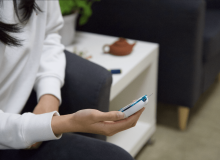People with diabetes should eat sugary foods when they experience hypoglycemia, but how to eat them? How much to eat?
What are the symptoms of hypoglycemia?
Symptoms of sympathetic nervous excitement: often appear when blood sugar drops rapidly, manifesting as hunger, weakness, fatigue, fatigue; sweating, anxiety, palpitations; abnormal skin sensation; limb tremors; changes in consciousness and personality; cognitive impairment, convulsions, and coma;
Changes in the central nervous system: seen in slow and continuous decline in blood sugar, manifested as slow reaction, hearing loss, memory, calculation, and judgment abilities, hazy consciousness, drowsiness, or even unconsciousness, inability to respond, epileptic convulsions, and hemiplegia , incontinence of urine and feces until coma, this kind of hypoglycemia is the most serious and dangerous.
Most patients are outside the hospital when they experience hypoglycemia. Once hypoglycemia occurs, patients are often in a state of extreme nervousness and panic. They eat whatever they see and swallow dates in one gulp. As a result, they overeat and their blood sugar levels jump. It is too high; there are also patients who have eaten several rounds of food, but the symptoms are still not relieved, and the hypoglycemia is still not corrected.
What should you do when you encounter hypoglycemia?
Three "15"s are very important!
first 15
When blood sugar is lower than 3.9mmol/L or symptoms of hypoglycemia occur, immediately add 15~20g of carbohydrates.
So someone might ask what contains 15g of carbohydrates? Some patients keep chocolate, biscuits, milk or bread with them just in case. However, the above foods cannot quickly raise blood sugar, so what kind of foods should we choose?
Glucose tablets are the best choice, they can directly and quickly raise blood sugar, but they are difficult to buy in ordinary pharmacies or shopping malls. (I searched for "Meishengtang Glucose Chewable Tablets" on a certain website, 2.5g / tablet, 6 tablets It is roughly equivalent to 15g of carbohydrates; there are also 6-7 German DAS glucose tablets, which are equivalent to 15g of carbohydrates); glucose powder is easy to buy from pharmacies and is also a good choice. The disadvantage is that it is not convenient to carry. If you are thoughtful If you are a person, you can carry it in separate packages;
l 150~200ml pure juice;
lSports drinks;
l 4~6 gummy candies (depending on different product labels. Personally, I think fruit-flavored gummies are easy to carry, not easy to melt, and easy to chew. They are not as slippery and difficult to chew as hard candies);
l 1 tablespoon of white sugar or 1 tablespoon of honey; (standard 1 tablespoon is 15g, level with the surface of the spoon);
l 3 cubes of sugar.
The above are all foods containing about 15g of carbohydrates, which can help us quickly raise blood sugar while avoiding too much supplement and blood sugar jumping too high. Since fresh fruits are rich in fructose, which has a low glycemic index, and the fiber content in fresh fruits affects the absorption of sugar, it is not recommended to eat fresh fruits to quickly correct hypoglycemia when hypoglycemia occurs.
second 15
That's 15 minutes of waiting time.
Many patients have long-term hyperglycemia without obvious discomfort, but an episode of hypoglycemia will be unforgettable for life. This is because the rapid drop in blood sugar, cold sweats, palpitations, trembling hands and even the feeling of dying caused by sympathetic nerve excitement make patients very uncomfortable. It is easy to overeat all at once, resulting in a very high blood sugar spike. Then we need to wait for 15 Measure blood glucose again in minutes.
The third 15
If the blood sugar test after waiting for the above 15 minutes is still lower than 3.9mmol/L, give yourself 15g of carbohydrates again. This is the third 15, which means repeating the first step.
If the symptoms are not relieved after 30 to 45 minutes or after the above three cycles of treatment, and the blood sugar is still <3.9mmol/L, you should seek medical treatment as soon as possible.
If the symptoms improve and there is more than 1 hour before the next meal, you can eat some long-lasting carbohydrates, such as 2 biscuits, 1 piece of 40g whole wheat toast, and 200~300ml pure milk. These are good choices.
If it's meal time, eat as normal, but be reminded that this meal must contain carbohydrates.
When hypoglycemia occurs, be sure to record it, especially all possible causes (that is, what you did in the previous 24 hours) so that you can tell your attending doctor at the next visit. If you're prone to hypoglycemia, it's a good idea to carry candy with you when you go out, just in case.

